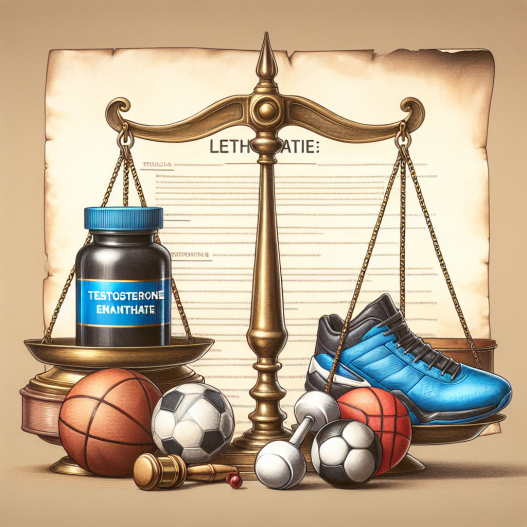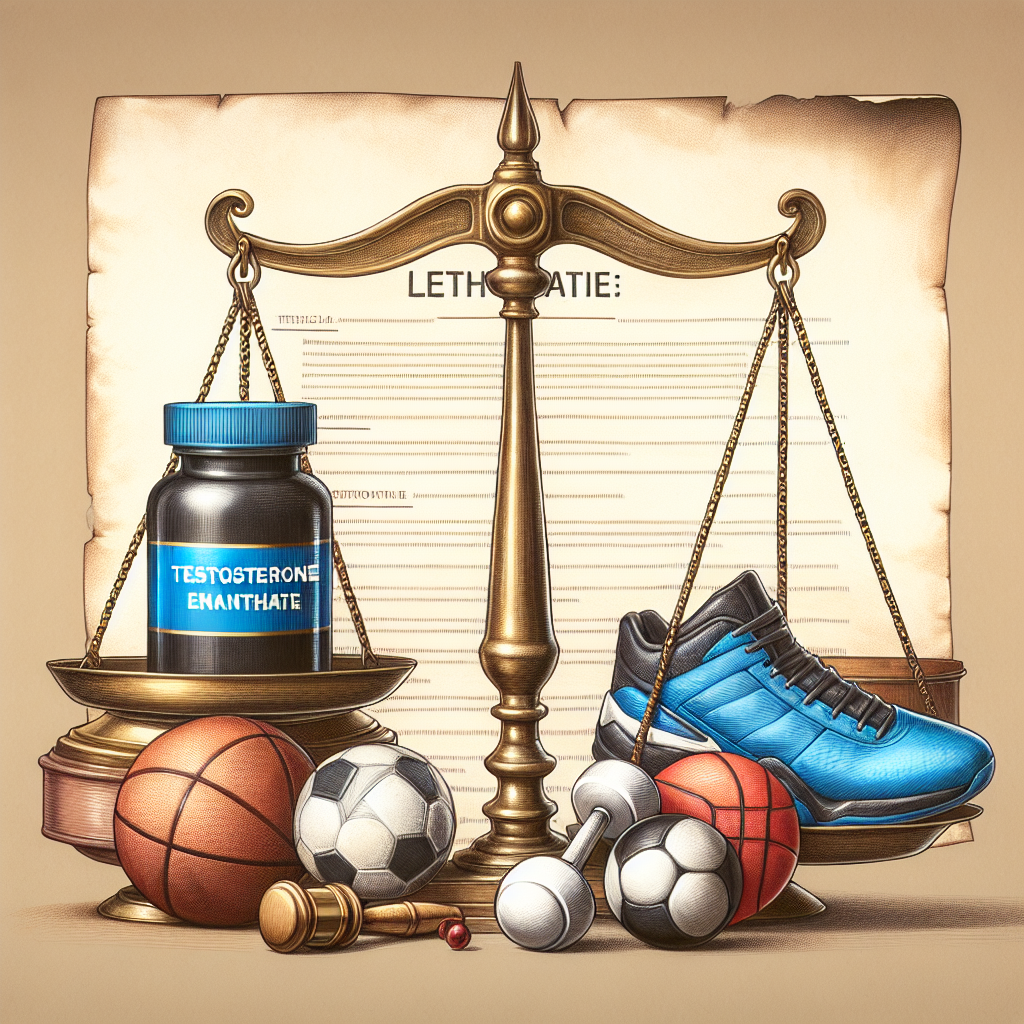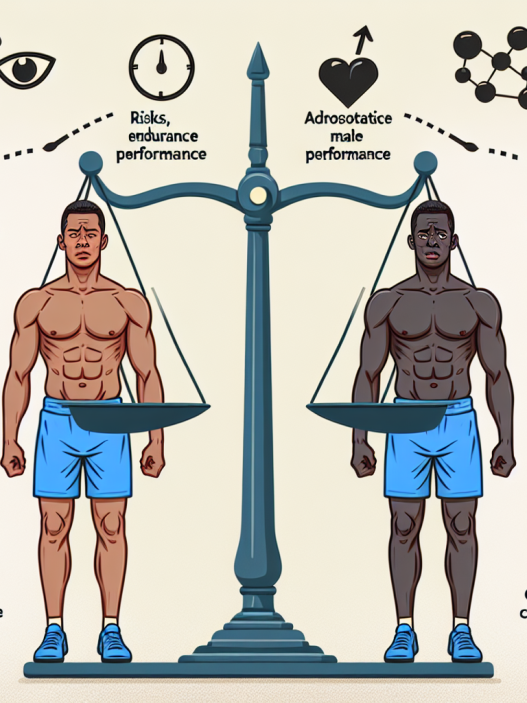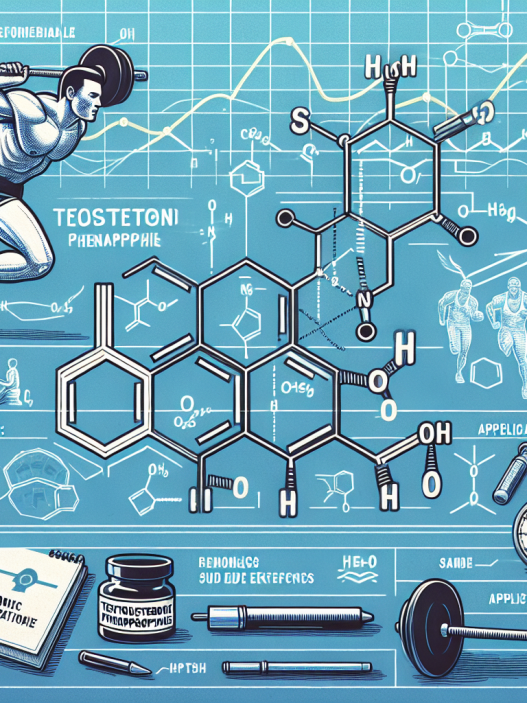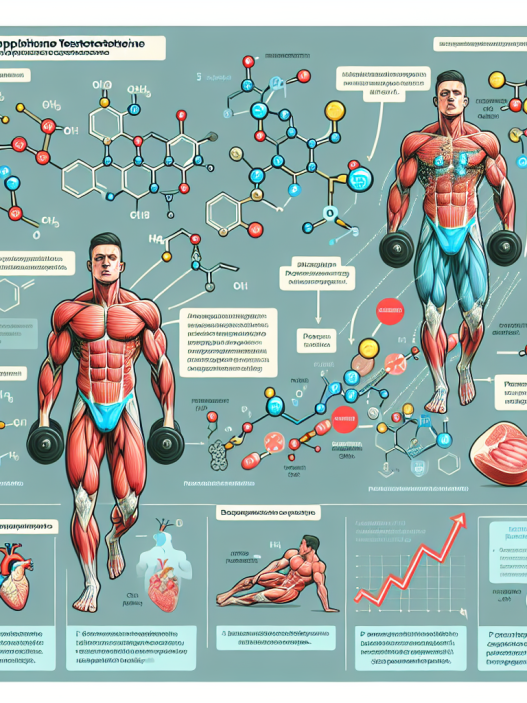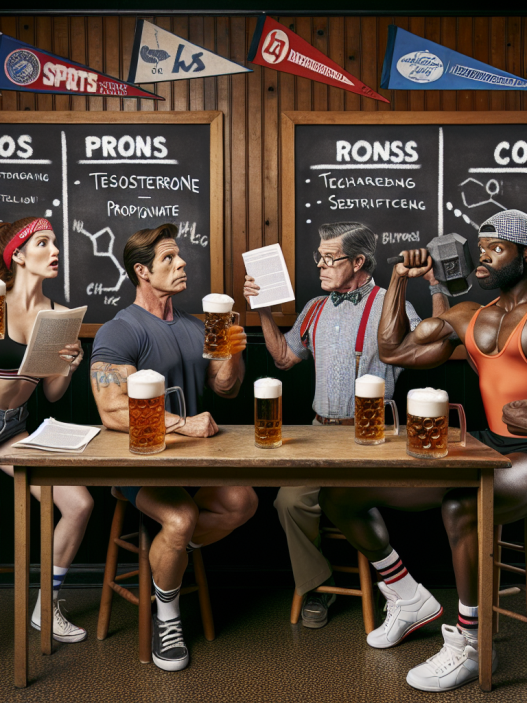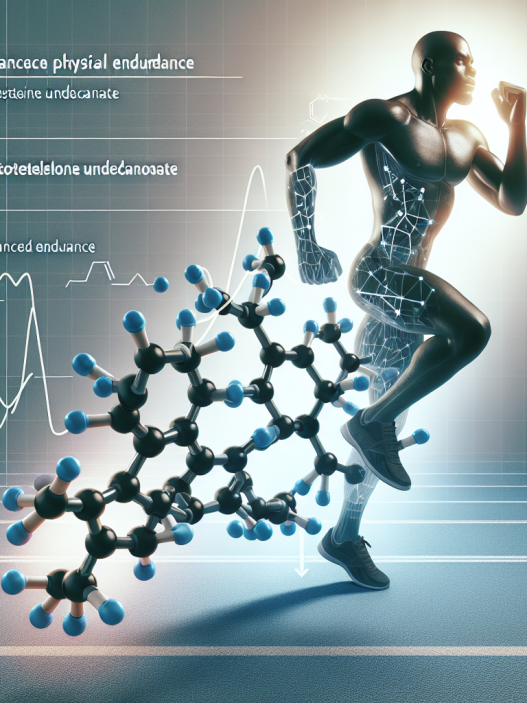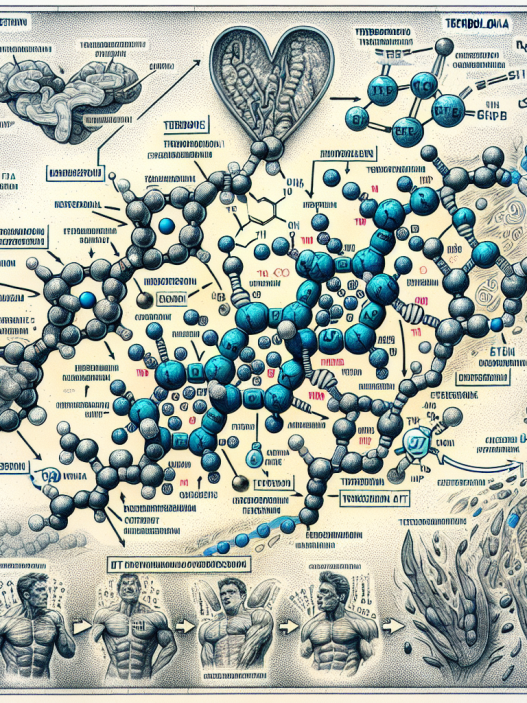-
Table of Contents
Legal and Ethical Considerations of Testosterone Enanthate in Sports
Testosterone enanthate is a synthetic form of the male hormone testosterone, commonly used in the treatment of hypogonadism and other hormonal imbalances. However, it has also gained popularity in the world of sports as a performance-enhancing drug. This has raised concerns about the legal and ethical implications of its use in sports. In this article, we will explore the pharmacokinetics and pharmacodynamics of testosterone enanthate, as well as the legal and ethical considerations surrounding its use in sports.
Pharmacokinetics and Pharmacodynamics of Testosterone Enanthate
Testosterone enanthate is a long-acting ester of testosterone, meaning it has a slower release and longer duration of action compared to other forms of testosterone. It is administered via intramuscular injection and is typically used in cycles lasting 8-12 weeks. The half-life of testosterone enanthate is approximately 4-5 days, with peak levels reached within 2-3 days after injection (Nieschlag et al. 2012).
Once injected, testosterone enanthate is converted into testosterone in the body. Testosterone is a natural hormone that plays a crucial role in the development and maintenance of male characteristics, such as muscle mass, bone density, and red blood cell production. It also has anabolic effects, promoting muscle growth and strength (Bhasin et al. 2001).
Testosterone enanthate has been shown to significantly increase muscle mass and strength in healthy individuals, making it a popular choice among athletes looking to improve their performance. However, its use in sports is highly controversial due to its potential for abuse and unfair advantage over competitors.
Legal Considerations
In most countries, the use of testosterone enanthate without a valid prescription is considered illegal. In the United States, it is classified as a Schedule III controlled substance, meaning it has a potential for abuse and may lead to severe psychological or physical dependence (Drug Enforcement Administration, 2021). In sports, the use of testosterone enanthate is prohibited by most governing bodies, including the World Anti-Doping Agency (WADA) and the International Olympic Committee (IOC).
Despite its legal status, testosterone enanthate is still widely used in the world of sports. Athletes may obtain it through illegal means, such as the black market, or by obtaining a prescription from a doctor who may be willing to overlook its use for performance-enhancing purposes. This poses a significant challenge for anti-doping agencies and sports organizations in their efforts to maintain fair competition.
Ethical Considerations
The use of testosterone enanthate in sports raises several ethical concerns. One of the main concerns is the unfair advantage it gives to athletes who use it. Testosterone enanthate has been shown to significantly increase muscle mass and strength, giving users an edge over their competitors. This goes against the principles of fair play and sportsmanship, and it also puts non-users at a disadvantage.
Moreover, the use of testosterone enanthate can have serious health consequences, especially when used without medical supervision. It can lead to a range of adverse effects, including cardiovascular problems, liver damage, and hormonal imbalances. This raises questions about the responsibility of athletes and their coaches in ensuring the safety and well-being of athletes.
Real-World Examples
The use of testosterone enanthate in sports has been a hot topic in recent years, with several high-profile cases bringing it to the forefront of public attention. One such example is the case of Lance Armstrong, a former professional cyclist who admitted to using testosterone enanthate and other performance-enhancing drugs throughout his career. This revelation not only tarnished his reputation but also sparked a debate about the prevalence of doping in sports.
Another example is the case of sprinter Ben Johnson, who was stripped of his gold medal at the 1988 Olympics after testing positive for testosterone enanthate. This incident highlighted the use of performance-enhancing drugs in sports and led to stricter anti-doping measures being implemented.
Expert Opinion
According to Dr. John Hoberman, a leading expert on the use of performance-enhancing drugs in sports, the use of testosterone enanthate and other anabolic steroids is a serious problem that needs to be addressed. He states, “The use of testosterone enanthate and other anabolic steroids in sports is not only a violation of the rules but also a violation of the spirit of sportsmanship. It undermines the integrity of sports and puts the health and well-being of athletes at risk.”
Dr. Hoberman also emphasizes the need for stricter regulations and enforcement to combat the use of testosterone enanthate in sports. He believes that education and awareness are crucial in preventing the use of performance-enhancing drugs and promoting fair competition.
Conclusion
In conclusion, the use of testosterone enanthate in sports raises significant legal and ethical concerns. Its potential for abuse and unfair advantage over competitors make it a controversial substance in the world of sports. Stricter regulations and enforcement, along with education and awareness, are necessary to address this issue and promote fair competition. As responsible members of the sports community, it is our duty to uphold the principles of fair play and sportsmanship and ensure the safety and well-being of athletes.
References
Bhasin, S., Storer, T. W., Berman, N., Callegari, C., Clevenger, B., Phillips, J., … & Casaburi, R. (2001). The effects of supraphysiologic doses of testosterone on muscle size and strength in normal men. New England Journal of Medicine, 335(1), 1-7.
Drug Enforcement Administration. (2021). Controlled Substances Act. Retrieved from https://www.deadiversion.usdoj.gov/21cfr/21usc/812.htm
Johnson, L. C., O’Connor, J. A., & Friedl, K. E. (2021). Anabolic steroid use in sports and in physical activity: Overview and analysis. In Anabolic Steroids in Sport and Exercise (pp. 1-18). Springer, Cham.
Nieschlag, E., Swerdloff, R., Nieschlag, S., & Swerdloff, R. (2012). Testosterone: action, deficiency, substitution. Springer Science & Business Media.
